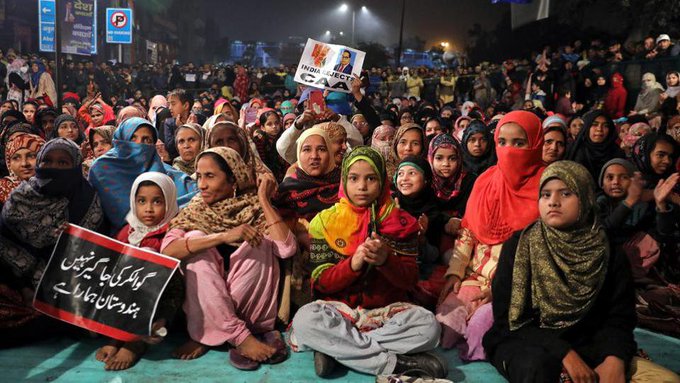
I watched my son enjoying and dancing; wearing a sari and a big bindi on his forehead. At first I was amused and extremely furious, I just wanted to go ahead and slap him hard for what he was doing. I wanted to snatch away that sari he wore, but something held me back, and I waited at the doorstep and peeped through the hollows of the door to understand what he was doing.
As I looked further, he enjoyed himself- he giggled looking at the mirror while adjusting the pleats, he danced and swayed like a lady. I kept looking at him till the time I realised and he further went on to tell me that dressing up like a girl is what he likes, he loved to apply lipstick and roam around. Beautiful colours and long earrings for that matter attracted him the most, and he wishes to live like that every day- to live according to his will and desires and be what he wanted to be. He was embracing his identity of being transgender.
I felt something is just lost from me, I wish I could rubbish those words and get my son back somehow, I thought he was mad to have said something like that, and I could counsel him back…..but no, it was hard to accept, but he asserted time and again that it was his identity, his true self and the real ‘he.’
Transgender or people from the LGBTQI community face such hardships when they explore their true identity, although their identity is what they desire and the way they want to live, they accept their identity and wish to live with it, but it is the society and their own people who do not wish to accept them, their way of living, their desires, they are often ridiculed and made to feel bad about who they are.

We live in a society made up of conventions and a set way of living. Prejudices and stereotypes run the system, one way of life and strict gender binaries govern our society. Blue is for the boys and Pink is for girls- this is what we have often been taught and made to believe, there is no in between, no boy can like pink and even if he does he would be made to think over his choice again, but why?
In our society, human identity is quite often acquired; it is given by the society based on prejudices, stereotypes and the dominant culture. Human beings are very less left with the choice to explore their identity, to choose and understand what they like and what they desire and if one does, he/she is often abandoned by the society and is never accepted or treated amongst equals. I remember walking with a transgender friend on the busy streets of Delhi, the gaze we attracted, the way people looked at us helped me think of the condition of people from the third gender as they go about the chores of mundane life. It perhaps looked absurd and worth condemnation for people that a ‘normal’ girl could have a friend who was a transgender and that despite the discomfort that the society had towards us, we could be so easy in our gestures.
It is this perception of the society towards transgender or LGBTQI community that has led their marginalisation and abandonment, marginalisation not in terms of population but in employment and education specifically, even after being willing to receive the same with vigour.
A research study by International Labour Organisation on “Sexual Orientation and Gender Identity Discrimination at Work”, revealed that, transgender individuals suffer the highest degree of discrimination in employment. In yet another study conducted in United Kingdom in 2007 by Whittle, S. Turner, L. Al-Alami, M. Rundall.E and Thom. B titled “Engendered penalties: Transgender and transsexual people’s experiences of inequality and discrimination”, it was found and documented that more than 40 per cent of transgender workers do not find the opportunity to live in their preferred gender identity expressions due to fears of workplace repercussions and about a quarter of transgender workers are pressured to change jobs due to experience of discrimination and victimisation (although the area of transgender have been quite under researched).
Are we accepting them well?
The stigma attached to the transgender or LGBTQI community is intense in our society or at workplace, there is always a conception of ‘other’ attached to them. By “other” we signify those who are different from the hetero normative concept of gender, “other” who do not fit into gender binaries and hence are considered human beings with a world which does not resonate with the society’s set standard of “normal” and it is this perception of the society that has often led to discrimination of the transgender in public life.
But the fight from the LGBTQI community to assert themselves and assert their right to identity have been quite strong and long and it is now that in 2018, even after the mentioning of transgender community in Hindu scriptures or religious texts, that our society has accepted the right to live with their identity for the transgender communities after the Supreme Court scrapped Article 377 of the Indian Constitution which interfered with the rights and sexual freedom of this community.
The Supreme Court did scrap this article but when will we as a society be able to scarp away the stigma associated with this community, will we be able to let go of the prejudices and stereotypes attached to them, will we be able to do away with the label of “other” which we have given them? This is a larger question to address, dancing with them in rallies and on streets or queer marches for celebrating their identity is one thing but accepting them is quite another.
It gave me immense pain when one of my transgender friends once told me, that even after living in the same city, he has to live away from his family in a separate residence because he wore sari and was a transgender. His parents accepted his identity and also gave him the freedom to live the way he wanted, but they never feel comfortable walking with him in public. The trauma and anguish articulated by him perhaps echoes the plight of many from his community who despite their education and capability have not been able to reach out to the conscience of the average individual in the society whose perceptions are yet to change. The Supreme Court has taken a momentous measure and now the onus is on us to take it further.













